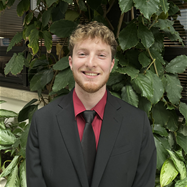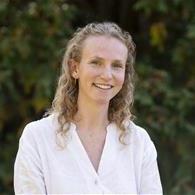What is Public Health?
Public Health is the study of complex health issues affecting individuals, families, communities and populations. The Bachelor of Science in Public Health prepares students for a multitude of roles in the fields of public health practice, including creating policy and conducting research, leading public health organizations, and developing preventive health practices to improve individuals’ quality of care and quality of life.
Bellarmine’s Public Health program provides a strong foundation in essential public health topics, including epidemiology, health policy, environmental health, biostatistics and health behavior.
What makes Bellarmine's approach to Public Health stand out?
The Public Health degree at Bellarmine follows the rigorous curriculum standards from the Council on Education for Public Health (CEPH), a mark of excellence for Public Health programs. Many courses in the curriculum feature community engagement, and students in the program complete a 90-hour internship with local partners to aid underserved communities and prepare for a future career in the field.
Faculty members in the program are recognized as national experts and serve on committees for state and national organizations, which also presents numerous travel, networking and mentorship opportunities for students.
The Student Perspective
 Brenton Shrock is a senior at Bellarmine studying Health Care Administration and Public Health. This winter, Shrock is attending a 14-day Comparative Health Systems course in Zanzibar, Tanzania, where students will visit HIV/AIDS clinics and learn about health systems in rural Zanzibar. Shrock is considering pursuing a master’s degree in Health Care Administration or Epidemiology after graduation.
Brenton Shrock is a senior at Bellarmine studying Health Care Administration and Public Health. This winter, Shrock is attending a 14-day Comparative Health Systems course in Zanzibar, Tanzania, where students will visit HIV/AIDS clinics and learn about health systems in rural Zanzibar. Shrock is considering pursuing a master’s degree in Health Care Administration or Epidemiology after graduation.
Here's what Shrock had to say about his experience in the Public Health program.
Q: What about Bellarmine’s Public Health program has stood out to you?
BS: I think what has really stood out to me was the type of classes Bellarmine offers and the student-to-professor ratio. I really enjoy having those smaller classes, and because Public Health is such a new major here we have very small classes, which might shy some people away but for me it was really a positive that stood out because I could have a better relationship with my professor and really dive into deeper topics in Public Health.
Q: Can you describe what the relationship with professors is like in this department?
BS: They really open more doors to what Public Health offers and what you can ultimately end up doing as a career. Having that one-on-one relationship with professors is great because they can guide you into different things and help you with questions if you need it. The relationships I’ve made with those professors in Public Health have gone beyond the classroom and gone beyond just what we’ve learned, because they want to help me succeed, and any health care field that I go into, any career, they’re there to help me and guide me.
Q: What about the relationship with your fellow students in Public Health?
BS: One thing that has contributed to my success at Bellarmine is the people that I’ve met throughout my major and through my time [here]. That’s been the most important thing, collaborating with people that are going through the same thing you are and studying the same thing you are. It’s one thing to learn it but talking about it and actually understanding the material with other people is so much better.
Q: How has your experience in this program helped you prepare for life after Bellarmine?
BS: Through the Public Health major, I was able to attend the Kentucky Public Health Association conference. I went with a group of students from Bellarmine and we got to see [public health] from a state point of view. There was a scenario that we had to dive into and [decide] how you are going to take this disease or scenario in a population and make it better for people around them. Being able to experience that hands-on and meeting different people in public health, to understand that there’s so many different career paths you can take, I think that’s one way that the faculty have really opened up the major.
Q: So, a big part of the Public Health experience for you has been exposure to the real world of this discipline?
BS: Yes. I think that’s really crucial in public health because you can learn about it in the classroom but actually being able to go out of the classroom opens up so many different doors, and it’s really crucial to my learning of what public health is and how I can have a future career in public health.
Q: How would you describe the learning environment at Bellarmine and in the Public Health department specifically?
BS: Overall, I would say the learning environment at Bellarmine is very hands-on. Specifically with Public Health, I think it makes the experience a thousand times better. Being able to collaborate with a small student size and that one-on-one with your professor really helps you understand the material and do well in the class.
Q: What would you say to a prospective student interested in studying Public Health at Bellarmine?
BS: If you don’t really know what you want to do within Public Health, I would definitely start by reaching out to professors Dr. Blair and Dr. Tomlinson. They’re fantastic and they’ll talk to you and help you figure out basic classes that are suited for Public Health majors. I think taking courses like those will introduce people to what Public Health is and what the routes you can take with that are.
The Faculty Perspective
 Dr. Madeline Tomlinson is an Assistant Professor of Public Health and Health Administration with a Ph.D. in Epidemiology and a Master of Public Health from the University of Louisville, and a bachelor's degree in the History of Public Health, Science and Medicine from Yale University.
Dr. Madeline Tomlinson is an Assistant Professor of Public Health and Health Administration with a Ph.D. in Epidemiology and a Master of Public Health from the University of Louisville, and a bachelor's degree in the History of Public Health, Science and Medicine from Yale University.
Tomlinson emphasizes that two main benefits of Bellarmine’s Public Health program are small class sizes and the school’s mission of holistic education. By pairing specific discipline skills with a liberal arts focus on lifelong learning, curiosity-driven inquiry and critical thinking, Tomlinson says Bellarmine Public Health students are uniquely positioned to thrive.
“Public Health students benefit from opportunities to take courses across disciplines, including psychology, environmental science and sociology, which enriches their understanding of health issues. This interdisciplinary learning prepares students to tackle complex health challenges from multiple perspectives and promotes adaptability, a crucial skill in the evolving field of public health,” Tomlinson says.
Small class sizes allow professors to nurture student growth and connect them with opportunities outside of the classroom. In addition to internships that build practical skills and professional networks, Public Health students also enjoy opportunities to participate in research projects alongside faculty.
“Faculty actively involve students in research projects, service-learning initiatives and community-based health assessments, allowing them to apply classroom knowledge to real-world situations. Public Health students work closely with faculty on projects that address community health needs, gaining hands-on experience in areas such as epidemiology, health promotion and policy analysis," Tomlinson says.
Overall, the department focuses on creating a solid foundation for Public Health students, providing both the skills to begin their career and the mindset to help them thrive long-term.
“Bellarmine instills a spirit of lifelong learning, encouraging students to remain curious and keep their skills and knowledge up to date," Tomlinson says. "This adaptability is crucial for responding to emerging health challenges, staying current with public health research and advancing professionally over the course of their careers.”
Visit the Public Health program page for more information including program highlights and career opportunities.